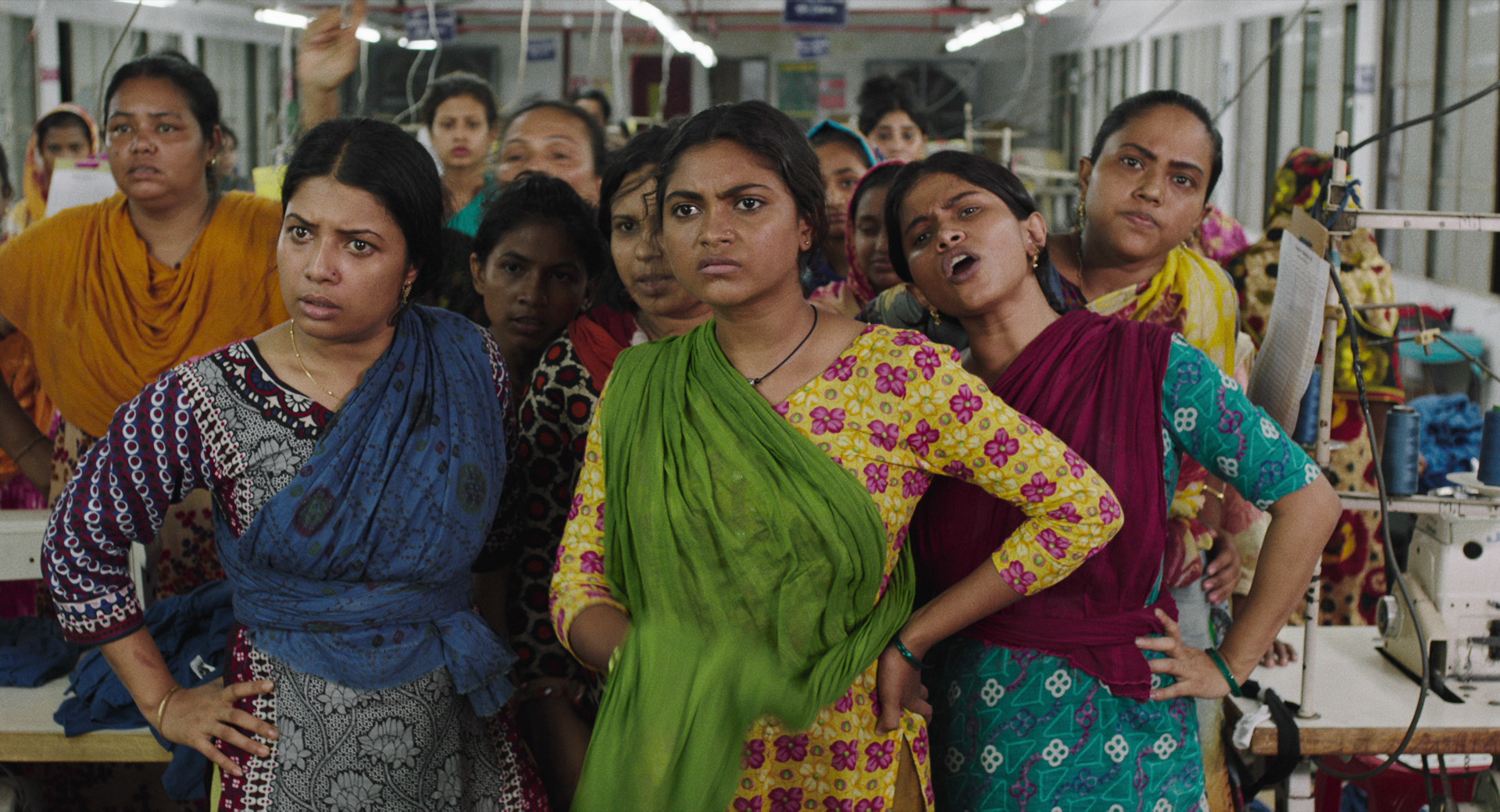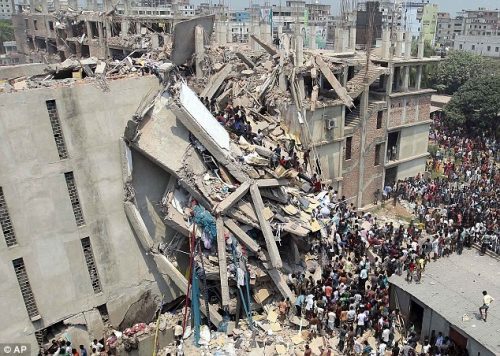MOVIE

Made in Bangladesh
Produced in 2019 (released in 2022)
Director: Rubaiyat Hossein
☆☆☆
Synopsis.
Dhaka, the capital of Bangladesh, is home to the sewing factories of the world's major apparel brands. A factory worker, Sim (Rikita Nandini Sim), stands up to form a labor union with her colleagues who are suffering from the harsh working conditions. Despite threats from factory executives and opposition from her husband and fellow workers, she learns labor laws and struggles…
☆☆☆
UNIQLO has announced a price increase for some of this year's fall/winter products, and it has become a hot topic. The price of fleece and other items will increase by 1,000 yen, which is quite painful for the general public.
Amid a series of price hikes for food, fuel, and other items, prices of daily necessities such as clothing are also likely to rise in the future.
The Corona shock, the Ukraine shock, and now the shock of the yen's depreciation may seem like an outrageous situation when one thinks about it.
UNIQLO is a Japanese company (capital ratio aside), but the weak yen and transportation costs affect UNIQLO because its clothes are made overseas. Most of the sewing factories used to be in China, but recently Bangladesh and Vietnam have also been on top of the list. The clothes are made in countries with low labor costs, brought to Japan, and sold at low prices.
This is the capitalist system.
Apparel makers around the world have set up sewing bases in Bangladesh and Cambodia one after another to take advantage of the low labor costs. The countries, which have been ravaged by civil wars, have no concept of labor laws, are chronically poor, and have many problems, such as old customs and discrimination between men and women. However, the companies did not care about such things and did not pay attention to the safety and treatment of their workers.
As a result, a tragedy occurred in 2013.
The result was the "Lana Plaza Collapse.

A building complex near the Bangladeshi capital of Dhaka collapsed, killing 1,127 people, leaving 500 missing and 2,500 injured. The building housed the sewing factories of 27 fashion brands, and although cracks were identified the day before the accident, the workers were not allowed to evacuate, leading to the accident.
In response, the brand claimed that they were unaware of the situation. They blamed the poor working conditions and sloppy safety management of the building on the local factory and the building owner.
☆☆☆
The setting of the sewing factory fire accident in the beginning of the movie "Made in Bangladesh" is modeled after the Rana Plaza collapse.
After the 2013 accident, the fashion industry took it upon itself to create an agreement on factory and building safety, which many companies signed. Others, such as the Bangladesh Worker Safety Coalition, were also launched, but both have expired and have outlived their usefulness.
Then in 2019, this film was made.
From the film, it does not appear that the situation has improved in any way. It appeared that workers were still being forced to work for low wages and in poor conditions. People are struggling to make ends meet, women are frightened by the violence of men, and the factory manager shows no resistance, fearing that his meager income will be cut off.
The story is about a woman who stands up to break the cycle of violence, but the process leading up to it is so terrible that, frankly speaking, even those who watch the film are devastated and exhausted.
Why in the world is it so hard to change the world?
☆☆☆
I myself learned to make clothes several years ago. It was not just a hobby, but I learned the process of making patterns (drawings) from scratch, cutting, sewing, and sewing.
I like making things, but making clothes was very difficult. It takes a lot of time and effort. And if you are not used to it, it takes time. It may be that you have to measure and look at drawings every time you make something that a skilled craftsman can do by intuition, but it also takes a lot of time and effort to make one dress.
So after learning to make clothes, UNIQLO clothes seemed like "gods" to me…how could they make these pants for 1980 yen?
And making your own clothes seemed so inefficient. Because it would be faster to buy them.
So, I was living my life completely indebted to fast fashion….
I should have known it. I knew that there was no way I could afford to buy so cheaply.
Whenever someone is living a rich life on the earth, someone else is suffering from poverty on the other side. When I casually wear clothes from UNIQLO or H&M because I think they are cheap and cute, I have to think about the women who work ten or more hours a day and receive only the equivalent of two pieces of clothing a month.
The SDGs that are so popular these days are supposed to make us think about such things. But no company is saying this in their commercials, right? Or, "This T-shirt is made in Bangladesh for 80 yen a day," or "The working environment in our factories is not good, but we make everyone work without complaint.
Perhaps the company's idea of the SDGs is to collect used clothes and send them to Africa saying they will reuse them, or to develop gender-sensitive products (put a rainbow color somewhere), or to sell eco-bags instead of plastic bags saying it is for the environment I guess this is what they are doing.
When we talk about these things, we will be cursed, "Why don't you just not wear them?" But that is inevitable for everyone, just like cursing Chinese people while using iPhones, or living in urban centers far away from nuclear power plants while shouting that nuclear power plants are safe. What happens when we are on the same boat cursing each other about it? It will only sink the ship.
As I wrote at the beginning of this article, Japan may be in a more critical situation than other countries. If wages do not increase and the yen continues to depreciate, Japan will once again be working for wages at the level of developing countries. But Japan has human rights guaranteed by its constitution and does not allow absurd working conditions like those in Bangladesh and other developing countries. Recently, however, there is a movement to do away with this concept of human rights.
This is the "Constitutional Reform Debate.
It is not just Article 9 that they are trying to change. In fact, you should know that the LDP's draft constitution seeks to take away these basic human rights altogether. (The new draft is said to be submitted after the election, but we have a copy of the previous announcement, so please check this article: https://news.yahoo.co.jp/feature/ 386/).
In this season when the temperature is rising rapidly, don't you feel a chill running down your spine?
The regular election for the House of Councillors will be held on Sunday, July 10.
responsibility for wording of an article: Yukiko Yako


